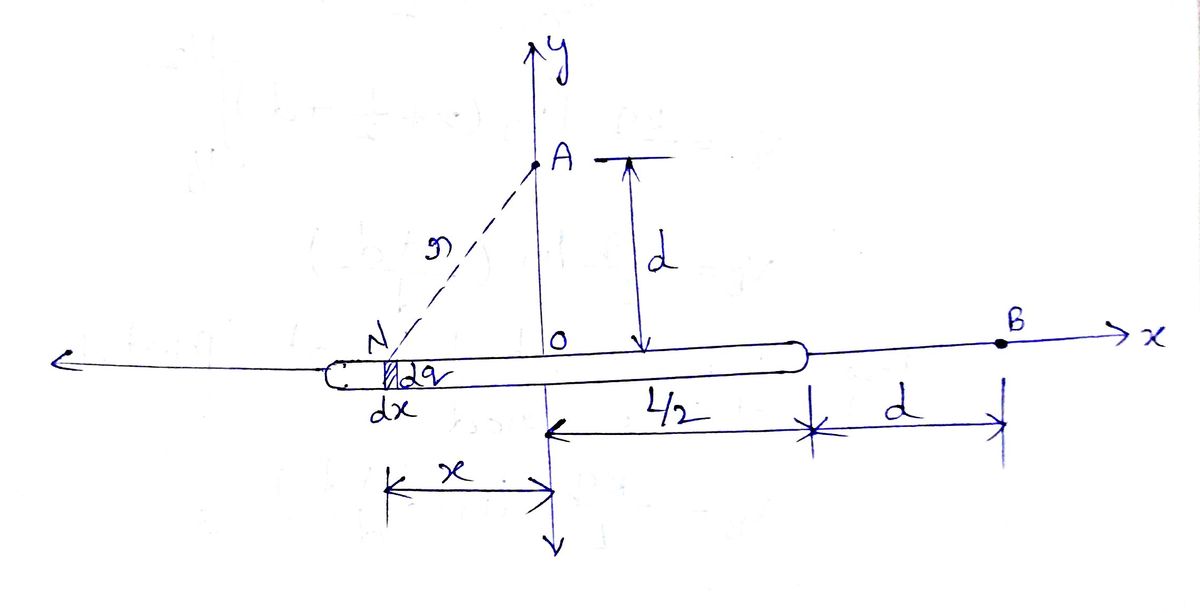A finite rod of length L has total charge q, distributed uniformly along its length. The rod lies on the x-axis and is centered at the orgin. Thus, one endpoint is located at (-L/2,0), and the other located (L/2,0). Define the elctric potential to be zero at an infinite distance away from the rod. a. What is VA, the ectric potential at point A, located at a distance d above the midpoint of the rod on the y-axis? b. What is the VB, the electric potential at point B, located at distance d from one end of the rod (on the x axis)?
A finite rod of length L has total charge q, distributed uniformly along its length. The rod lies on the x-axis and is centered at the orgin. Thus, one endpoint is located at (-L/2,0), and the other located (L/2,0). Define the elctric potential to be zero at an infinite distance away from the rod. a. What is VA, the ectric potential at point A, located at a distance d above the midpoint of the rod on the y-axis? b. What is the VB, the electric potential at point B, located at distance d from one end of the rod (on the x axis)?
Related questions
Question
A finite rod of length L has total charge q, distributed uniformly along its length. The rod lies on the x-axis and is centered at the orgin. Thus, one endpoint is located at (-L/2,0), and the other located (L/2,0). Define the elctric potential to be zero at an infinite distance away from the rod.
a. What is VA, the ectric potential at point A, located at a distance d above the midpoint of the rod on the y-axis?
b. What is the VB, the electric potential at point B, located at distance d from one end of the rod (on the x axis)?

Transcribed Image Text:d
+q
L/2
L/2
Expert Solution
Step 1

Trending now
This is a popular solution!
Step by step
Solved in 4 steps with 4 images
